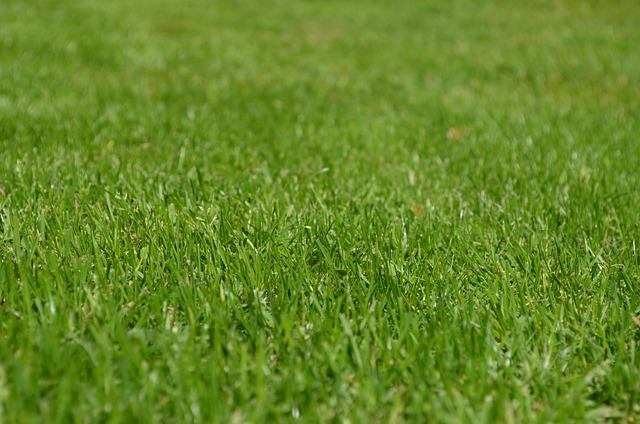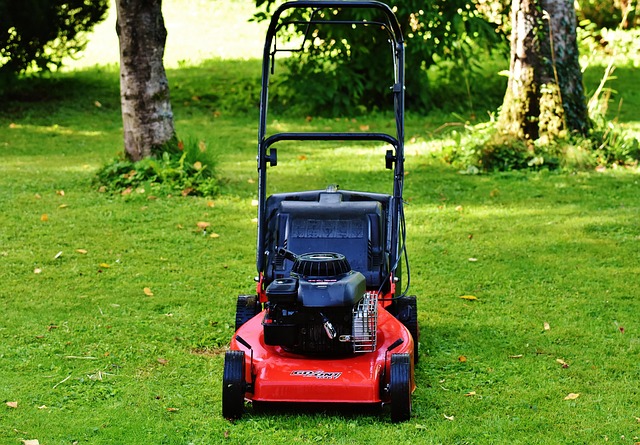Efficient lawn care in Centennial relies on understanding watering patterns tailored to weather and grass types, with optimal times being early morning or late evening. Addressing industrial weed control along pipelines is crucial due to environmental risks posed by weeds, which can be managed using eco-friendly methods and targeted herbicidal solutions from professional services. Optimizing watering schedules involves precise timing, efficient techniques like drip irrigation, and smart sensors to reduce water waste while minimizing environmental damage caused by weeds. This strategy conserves resources, fosters ecosystem health, and ensures structural integrity of vital infrastructure. In urban areas, tailoring watering to local microclimates significantly reduces water use while promoting grass health; targeted spot-watering and regular maintenance are vital for industrial sites with high weed populations near Centennial. Advanced technologies enhance efficiency through precise watering based on real-time data.
In the quest for sustainable landscape management, optimizing lawn plant watering schedules is paramount. This article explores strategic approaches to water conservation, focusing on Centennial’s unique challenges with industrial weed control along pipelines. We delve into understanding water usage patterns and present efficient practices tailored for urban landscapes. By implementing optimized watering schedules, communities can reduce water waste, mitigate environmental impact, and ensure pipeline safety. Discover how these strategies contribute to a greener, more resilient urban future while addressing critical weed management in Centennial.
- Understanding Watering Patterns and Industrial Weed Control in Centennial
- Optimizing Watering Schedules: A Strategic Approach for Pipeline Safety
- Implementing Efficient Water Management Practices in Urban Landscapes
Understanding Watering Patterns and Industrial Weed Control in Centennial

In Centennial, understanding watering patterns is key to an efficient lawn care regimen. The optimal time to water varies based on weather conditions and grass types, typically early in the morning or late in the evening when temperatures are cooler and evaporation rates lower. This ensures that your lawn receives adequate hydration without wasting water.
Parallelly, addressing industrial weed control along pipelines near Centennial is paramount. Weeds not only compete with grass for essential resources but also pose environmental risks by potentially damaging pipeline integrity. Professional services employing eco-friendly methods and targeted herbicidal solutions can effectively manage these unwanted plants while minimizing ecological impact. Industrial weed control strategies specifically tailored to the area ensure a lush, healthy lawn and safeguard critical infrastructure like pipelines.
Optimizing Watering Schedules: A Strategic Approach for Pipeline Safety

Optimizing watering schedules is a strategic approach that goes beyond mere plant health, especially in industrial settings like those around Centennial. Effective water management is crucial for pipeline safety, as it reduces the risk of environmental damage and operational disruptions caused by weeds and overgrowth along pipelines. By implementing precise timing and efficient techniques, such as drip irrigation or smart sensors, companies can ensure targeted watering that meets plant needs without wasting resources.
This methodical approach to industrial weed control along pipelines near Centennial not only conserves water but also fosters a healthier ecosystem. It prevents weed growth that could invade pipe trenches, causing structural damage and hindering maintenance access. Optimized schedules, combined with regular monitoring and tailored chemical applications when necessary, create a robust pipeline protection strategy, ensuring the integrity of vital infrastructure.
Implementing Efficient Water Management Practices in Urban Landscapes

In urban landscapes, efficient water management practices are essential for sustainable lawn care. Implementing strategic watering schedules and techniques can significantly reduce water consumption while promoting healthy grass growth. One effective approach is to optimize watering based on specific microclimates within the landscape, considering factors like shade, soil type, and vegetation density. For areas with high weed populations, such as industrial sites along pipelines near Centennial, targeted spot-watering and regular maintenance are crucial. By focusing water on problem areas rather than extensive spraying, you can effectively manage weeds while minimizing water waste.
Additionally, integrating advanced technologies like smart irrigation systems and soil moisture sensors can further enhance water efficiency. These tools allow for precise watering based on real-time data, ensuring that each area receives exactly what it needs. This tailored approach not only conserves water but also fosters a lush, vibrant lawn while mitigating the challenges posed by unwanted weeds, including industrial weed control along pipelines.
By optimizing lawn plant watering schedules, we not only promote sustainable water management practices but also mitigate risks associated with industrial weed control along pipelines near Centennial. Implementing strategic approaches, as discussed in this article, can lead to significant reductions in water usage and the growth of unwanted weeds. These efficient water management techniques are essential steps towards a greener and more secure urban landscape.
